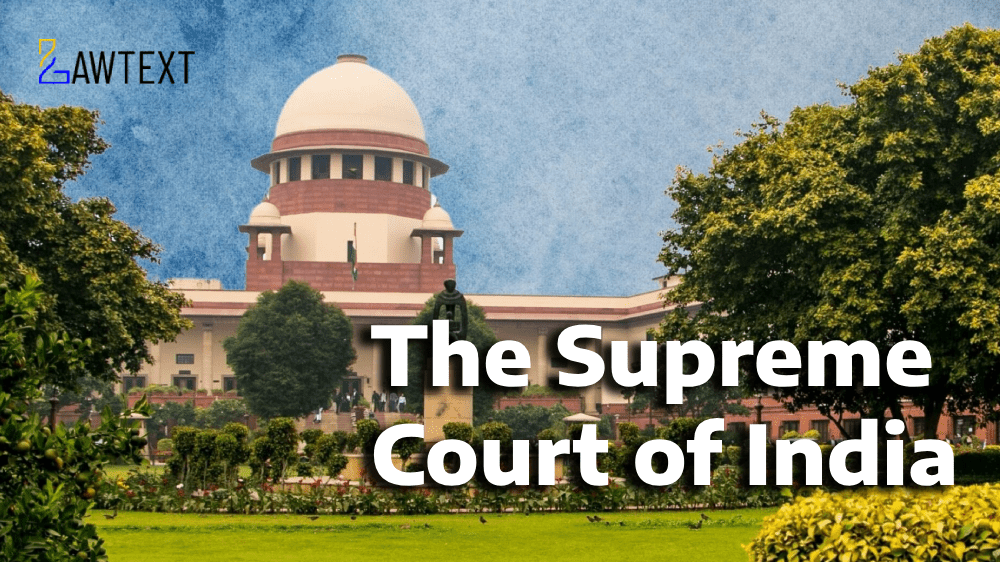

The Supreme Court partly allowed the appeals, setting aside the Madras High Court’s directions in paragraphs 22(iv), (v), (vi), and (vii) of its judgment. The Court held that the High Court could not interfere with the contractual terms of the MoU, which were entered into after due deliberation. The Court also rejected the High Court’s direction for the State to conduct such events independently, emphasizing the importance of public-private partnerships in sports events.
The Supreme Court’s judgment reinforces the importance of public-private partnerships in sports events, clarifying the State’s role in facilitating rather than directly conducting such events. The Court’s decision to set aside the High Court’s directions ensures that contractual terms, especially those related to financial obligations, remain within the domain of the contracting parties and are not subject to judicial interference in PILs.
Held: “The High Court could not have proceeded to interfere with the specific terms of the MoU entered into between the authority and the appellant herein.” (Para 23)
Held: “The direction for the State to conduct such events independently ignores the principle of public-private partnership adopted by governments across the globe.” (Para 23)
Major Acts:
Constitution of India (COI), Article 226 – Judicial Review of State Policy and Contractual Obligations.
Memorandum of Understanding (MoU) – Contractual Terms between Racing Promotions Private Limited (RPPL) and Sports Development Authority of Tamil Nadu (SDAT).
Subjects:
Public-Private Partnership – Judicial Review – State Policy – Contractual Obligations – Sports Event Funding – Formula 4 Racing – Public Interest Litigation (PIL) – Economic Benefits – State Facilitation – Noise Pollution – Public Safety.
Facts:
Nature of the Litigation: The case arose from a batch of Public Interest Litigations (PILs) filed before the Madras High Court challenging the conduct of Formula 4 racing events in Chennai, Tamil Nadu, citing public inconvenience, noise pollution, and misuse of public funds.
Who is Asking the Court and for What Remedy?: The appellants, Racing Promotions Private Limited (RPPL), challenged certain directions issued by the Madras High Court, particularly those related to the reimbursement of state expenditure and the imposition of financial obligations on RPPL.
Reason for Filing the Case: The High Court had directed RPPL to reimburse Rs. 42 crores spent by the State Government, deposit Rs. 15 crores in advance for future events, and bear the entire expenditure of the event, which RPPL contested as contrary to the terms of the MoU.
What Has Already Been Decided Until Now?: The Madras High Court permitted the Formula 4 event but imposed conditions on RPPL regarding funding and future conduct of the event, which were challenged before the Supreme Court.
Issues:
Whether the Madras High Court could interfere with the terms of the MoU between RPPL and SDAT, particularly regarding the apportionment of financial obligations?
Whether the State Government, through SDAT, could be directed to conduct such events independently in the future, bypassing private participation?
Whether the directions issued by the High Court, particularly regarding reimbursement and advance deposits, were legally sustainable?
Submissions/Arguments:
Appellants (RPPL): Argued that the High Court’s directions imposed new terms not agreed upon in the MoU, which was entered into after detailed deliberations. They contended that the State’s role was limited to facilitation, and the financial terms were mutually agreed upon.
Respondents (State of Tamil Nadu and SDAT): Supported the MoU, emphasizing the economic and infrastructural benefits of hosting the event. They argued that the State’s involvement was necessary for promoting sports and that the High Court’s directions were impractical and contrary to global practices of public-private partnerships.
Ratio:
Judicial Review of Contractual Terms: The Supreme Court held that the High Court, in a PIL, cannot interfere with the specific terms of a contract, especially when the terms were mutually agreed upon after detailed deliberations. The Court emphasized that issues of mutual obligations and financial apportionment are beyond the scope of judicial review in such cases. (Para 23)
Public-Private Partnership in Sports Events: The Court upheld the principle of public-private partnerships, noting that the State’s limited resources and the need for expertise make private participation essential. The Court rejected the High Court’s direction for the State to conduct such events independently, stating that it was neither legally feasible nor practical. (Para 23)
State’s Role in Facilitating Events: The Court clarified that the State’s role in facilitating sports events, rather than directly conducting them, is a global practice. The Court noted that the State’s involvement in providing infrastructure and support is crucial, but the actual conduct of events should be left to private entities with the necessary expertise. (Para 21)
Citation: 2025 LawText (SC) (2) 203
Case Number: CIVIL APPEAL NOS. 2755-2758/2025 ARISING OUT OF SLP(C) NOS. 10926-10929 OF 2024
Date of Decision: 2025-02-20
Case Title: RACING PROMOTIONS PRIVATE LIMITED VERSUS DR. HARISH & ORS.
Before Judge: [PAMIDIGHANTAM SRI NARASIMHA J. , MANOJ MISRA J.]
Appellant: RACING PROMOTIONS PRIVATE LIMITED
Respondent: DR. HARISH & ORS.